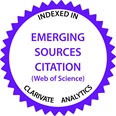ORCID
Quynh Duong Phuong 0000-0003-1149-6673
Keywords
empirical paper, student entrepreneurship, team, team dynamics, decision-making
Abstract
Purpose: The paper seeks to explore how team dynamics influence students’ decisions to either pursue or abandon a business idea following their participation in an experiential entrepreneurship course.
Design/Methodology: The paper employs an inductive, qualitative approach to examine the team dynamics by exploring students’ thought processes and actions regarding entrepreneurial activities as a socially situated phenomenon. 20 semi-structured interviews, observation and secondary data serve as data base, following the Gioia method for data analysis.
Findings: Findings show that team dynamics have proven to be the most relevant factor for students’ decision on whether to continue with an entrepreneurial project or not. Among various factors, reasons are rooted in the team membership decreasing uncertainty, students’ decision dependencies on team members and the increased importance placed on the team relative to the idea.
Research Limitations/Implications: The study concentrates on team-related aspects in students’ decision- making. While the factors have been examined in the study, other determinants may contribute to students’ decisions which are outside the scope of the study. The study offers a set of causalities that offer a nuanced understanding of team dynamics and decision-making processes over an extended post-course timeframe.
Originality/Value: The study contributes to the current literature by unraveling the intricate relationship between team dynamics and entrepreneurial decision-making. It offers a nuanced perspective on the understanding of how collaborative contexts shape students’ willingness to pursue projects beyond the entrepreneurship classroom.
Streszczenie
Cel: artykuł ma na celu zbadanie, w jaki sposób dynamika zespołu wpływa na decyzje studentów o realizacji lub porzuceniu pomysłu na biznes, podjęte po ich uczestnictwie w kursie przedsiębiorczości opartym na doświadczeniu. Metodologia: w artykule zastosowano indukcyjne, jakościowe podejście do badania dynamiki zespołu poprzez badanie procesów myślowych i działań studentów w zakresie działań przedsiębiorczych jako zjawiska usytuowanego społecznie. Zgodnie z metodą analizy danych opisaną przez Gioia za bazę danych posłużyło 20 częściowo ustrukturyzowanych wywiadów, obserwacja i dane wtórne.
Wnioski: wyniki pokazują, że dynamika zespołu okazała się najistotniejszym czynnikiem wpływającym na decyzję studentów o kontynuowaniu projektu przedsiębiorczego. Wśród różnych przyczyn zakorzenionych w członkostwie w zespole można wymienić zmniejszenie niepewności, zależność decyzji studentów od członków zespołu i zwiększone znaczenie przypisywane zespołowi w zależności do pomysłu.
Ograniczenia/wnioski z badań: badanie koncentruje się na aspektach związanych z zespołem w podejmowaniu decyzji przez studentów. Poza czynnikami, które zostały zbadane w badaniu, również inne, pozostające poza zakresem badania, determinanty mogą przyczyniać się do podejmowania decyzji przez studentów. Badanie analizuje zestaw przyczyn, które oferują zniuansowane zrozumienie dynamiki zespołu i procesów decyzyjnych w dłuższych ramach czasowych po zakończeniu kursu.
Oryginalność/wartość: badanie rozwiązuje skomplikowany związek między dynamiką zespołu a podejmowaniem decyzji w zakresie przedsiębiorczości. Oferuje zniuansowaną perspektywę zrozumienia, w jaki sposób konteksty współpracy kształtują gotowość studentów do realizacji projektów poza klasą przedsiębiorczości.
Acknowledgments
Funding
This research received no funds.
Declaration of Conflicting Interests
The author declared no potential conflicts of interest with respect to the research, authorship, and publication of this article.
Declaration about the scope of AI utilization
The authors used the AI tool ChatGPT to help check grammar (only) in the preparation of this article.
Recommended Citation
Phuong, Q. D. (2024). The Significance of Team Dynamics in Students’ Entrepreneurial Decision-Making. European Management Studies, 22(1), 25-51. https://doi.org/10.7172/2956-7602.103.2
First Page
25
Last Page
51
Page Count
27
Received Date
28.09.2023
Accepted Date
25.01.2024
Online Available Date
19.04.2024
DOI
10.7172/2956-7602.103.2
JEL Code
M, O
Publisher
University of Warsaw







